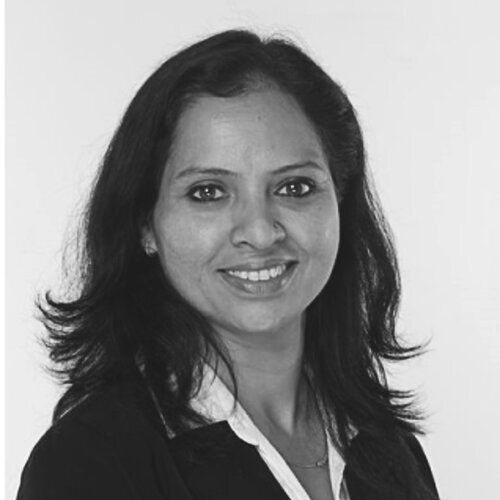3 Reasons You Are Getting in the Way of Your Own Success
Do you ever set a goal and then fail to follow through with what it takes to achieve it?
Lately, I have been setting so many goals. I started with eating healthy, then a focus on exercise and fitness, building (and sticking to) a disciplined routine for my day, expanding my coaching and training business, and contributing to my community. Despite my sincere desire to achieve all of these goals, I haven’t made the progress I anticipated.
I am sure at some point, many of us have felt the same way with our personal or professional goals. What holds us back?
I have said this to many people I have coached and heard it echoed back from my own coaches as well — “It’s all in the mind.” We all face powerful mental blocks that interfere when we are trying to achieve our goals. If you are going through something similar, the good news is, you (and I) can overcome them!
What stops you from doing what you said you wanted to do?
What is a mental block? A mental block is something that limits you or prevents you from completing important tasks and achieving success. You know you are dealing with mental blocks when you find it challenging to complete a train of thought or something you started with great excitement (or not). You are stuck in a never ending loop of your thoughts, struggling to stay focused and make progress.
”It’s easy to direct blame toward our character. After all, we are the ones standing in the way of our own success. For example, I have a tendency to use negative self-talk such as, “I am lazy” or “I lack the willpower.
Cognitive psychologist and coach Amanda Crowell’s research led her to name this phenomenon: defensive failure, which she discusses in her TED Talk. This is when in your heart you know that you want to achieve something, plan on how to go about it, and really desire to do it, but for whatever reasons you don’t. Crowell suggests that what keeps us from taking our good intentions and plans from concept to execution are three mindset blocks that perpetuate a cycle of defensive failure, which I found inspiring and will share below.
Mindset Block #1: “I just don’t think I can do this.”
Many of us experience setbacks, obstacles, and not so great beginnings because we start with self-doubt. Crowell explains, “You think that some people have the talent or the genetics to do this thing, and you don’t...If you believe that at the core of success is talent and genetics, then every stupid mistake matters a lot; it’s the proof you need that you didn’t have what it takes.”
For me, it was rooted in a need to perform with perfection, which can lead to procrastination and self-doubt. Even Crowell, on her own fitness journey, initially hesitated and then struggled to go to the gym. That didn’t stop her — she eventually completed a triathlon and a half-marathon.
How to overcome it: The first and the basic step is acceptance. Accepting yourself for who you are and knowing that ‘you are good and you are enough’ goes a long way. When we start believing each failure is just another step on the road to progress, we are developing what psychologist Carol Dweck refers to as a growth mindset. Employing a growth mindset helps us to find a way to understand why something doesn't work the first time and to seek out an another path.
I think back to when I was learning to solve trigonometry problems in school. An attempt and failure would lead to seeking out an alternative way to solve the problem using logic that made sense to me.
When we cultivate this kind of mindset, the mistakes lose their significance. They become opportunities to learn. As Crowell puts it, “At the heart of success is not talent; it’s effort over time that produces accomplishments.” The next time you feel like you’ve fallen short, tell yourself: “This is putting me one tiny step closer to my goal.”
Mindset Block #2: “People like me aren’t good at this.”
The more you have spent time on this earth, the more you have done, experienced good and bad, and have formed your own perceptions of how things can be and how they are. Ultimately, our experiences help us carve out our identities or our beliefs about who we are. While our identities can give us a sense of meaning and a place in the world, they can also get in our way from trying new things. We tend to resist doing things that might threaten our identity.
When I first decided to leave my corporate job to pursue my passion of training and coaching, I struggled (and still find it difficult) to sell my offerings and seek out clients. I made a long list of people I could tap into, meet, and connect with, many of whom I’d known for years throughout my career. When I started to call people, I got a few cold shoulders and this reinforced my belief that I was not the type of person who was good at this. When I had to call the rest of the list, I would find excuses to procrastinate. After reading about ‘defensive failure,’ I could relate that I was uncomfortable blowing my own trumpet because it went against my sense of identity. How can I brag about myself? How can I sell myself? What will people think? Now I realize, this is a common feeling; many of us will avoid doing anything that threatens our sense of self.
How to overcome it: It is very simple! Crowell says, “Find people like you, doing things like this, and share your concerns with them.”
I have learnt over the years that exposure to new perspectives makes a huge difference. Education from Landmark Forum and Agile Leadership Journey have brought significant changes in my thought process and actions. While Landmark Forum gives you a holistic perspective about life, being whole and complete just the way we are, the Agile Leadership Journey Guide Community has helped me discover blind spots that have blocked me from being an effective leader and coach. It has helped me build an awareness that has shifted my need for validation or the need to be perfect - to being okay with small steps toward progress and taking one day at a time. I am still a work-in-progress here but the point is, I have found connections with others who are prepared to offer support and share their journeys. I am working with partners who are helping me find ways to sell my offerings without feeling like I am selling out. I have realised that what Crowell suggests is true: the closer I can bring my goal or activity to my identity, the easier it is for me to move forward.
Mindset Block #3: “I feel like I have to do this thing, but I don’t really want to do it.”
This comes down to authenticity. Are we being honest with ourselves about really wanting to do this thing that we’ve set out to do. For example, deep in my heart, I don’t want to do the selling and self-promotion aspects of my business. I just want to coach, I want to help people, and enable leaders to be the best versions of themselves. I believe (and my coach believes) some level of selling and self-promotion is a ‘must have’ skill as an entrepreneur and I should want to do it. The hiccup is that deep down, I don't believe in it.
As Crowell puts it, there are generally two reasons why we want things. “On the one hand, you can value them for what we refer to as intrinsic reasons — reasons that come from inside of you, your interests, your curiosity, or your long-term hopes and dreams.” On the other hand, she describes extrinsic reasons as those things that you value for reasons that are outside of you. For example, a student going to medical school because they perceive it will make their parents proud.
There have been times during my career when I took on more responsibilities at work and sometimes I was able to follow through on that work with ease while other times it became a chore. When I had taken on the work for intrinsic reasons - because I enjoyed learning, being challenged and feeling accomplished - my motivation to give it my all would be strong. In contrast, when I was working for extrinsic reasons, like a promotion that I thought I should pursue although deep down I really didn’t want it, the motivation did not last long enough to see it through.
How to overcome it: Always ask yourself, “what is the why behind what you’re doing and what you say you want to do?” Regardless of your answer, it is your personal energy source, your intrinsic reason. It’s there for you to tap into whenever you need it — and you will need it. If you’re only coming up with extrinsic reasons for your activity or goal, you may decide that it’s not worth pursuing. However, if you are able to develop intrinsic interest and curiosity in what it will take to achieve your goal, Crowell suggests you will be more likely to be successful in completing the steps to get there.
A tip she suggests is after you figure out that underlying inspiration, write it down on a piece of paper and keep it with you at all times — in your purse or your wallet or as a wallpaper on your desktop or mobile. Crowell says, “When the moment comes that you want to get out or give up, you have to take that piece of paper out. Read it, and let it recharge you.” This helps you overcome procrastination, be powerfully productive, and do more without ever feeling overwhelmed.
Final Thoughts
No matter where you stand today, remember talent may take you where you want to get to, but what keeps you there is your effort and attitude. So accept who you are and drop the obsession to be perfect, focusing instead on progress and learning on your journey. While both extrinsic and intrinsic factors are influential drivers, making connections to your goal that come from within you can make the difference in whether or not you attain it.. Move ahead, one thing at a time to overcome defensive failure.







